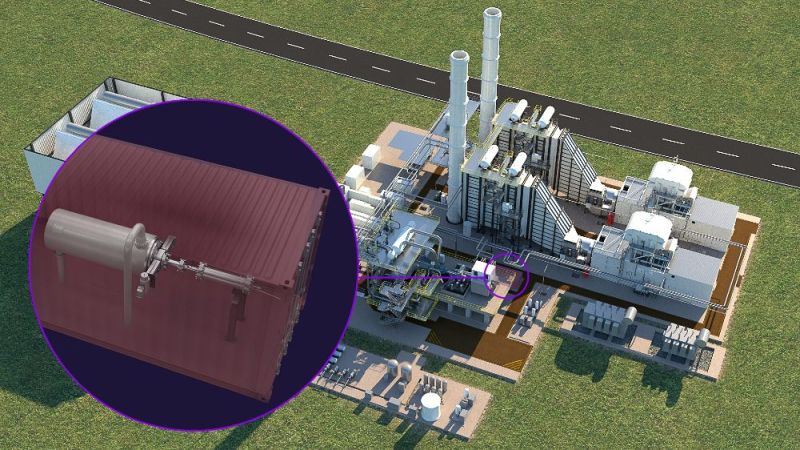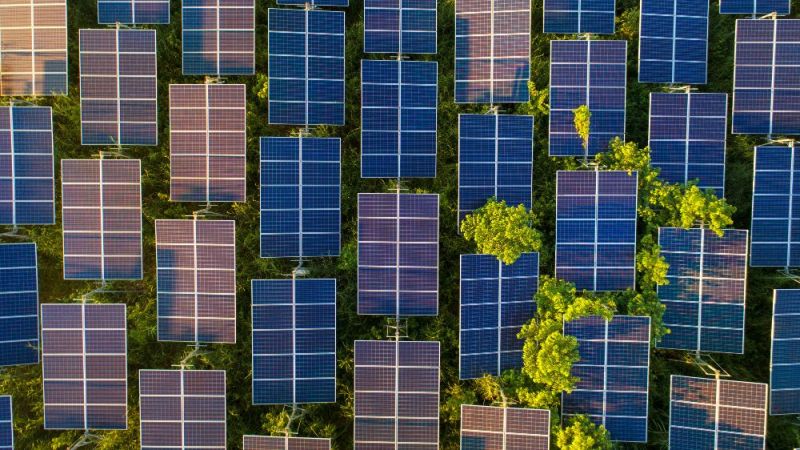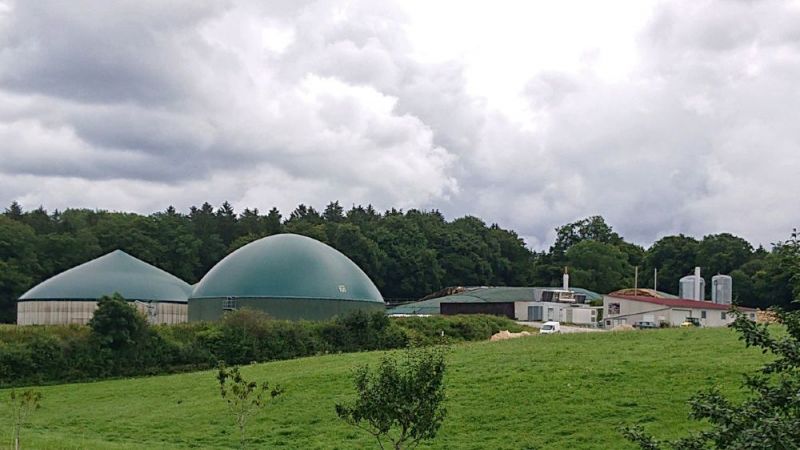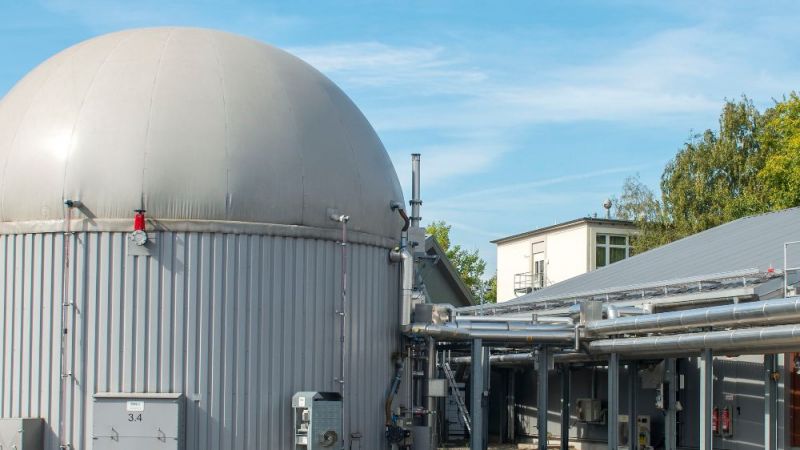Bioenergy
System-serving electricity generation with mini cogeneration plants
An optimised regulation algorithm expands the operating options of decentralised, biomass-fuelled mini cogeneration plants. This enables operators to use the electricity production efficiently for internal consumption and operate their plants in a grid-friendly manner.
Power from renewable energy sources represents an increasingly large share in the distribution grids of energy supply companies. This means that new and adapted strategies are needed for the operational management of the distribution grids. Depending on the region, electricity producers from renewable energy sources are distributed in very different locations. In addition, the number and type of plants vary. This means that network operators have to take different measures to ensure safe and reliable network operation. Particularly in rural areas, there is at times a local oversupply of power, which is not matched by an adequate quantity of consumers or sufficient network capacities.
The SNuKR project, which stands for "Increasing the benefits of small, biomass-fired CHP plants through demand-responsive control", aims to efficiently and effectively integrate solid biomass-fuelled mini cogeneration plants (CHP plants) into the local power grid. To this end, researchers from the German Biomass Research Centre (DBFZ) in Leipzig and the European Institute for Energy Research (EIFER) in Karlsruhe developed innovative control algorithms and investigated their efficiency. Together with the manufacturer of micro-CHP plants ÖkoFEN from Mickhausen, they optimised the application possibilities of small biomass-fired cogeneration plants in order to consistently utilise the advantages of this technology: Energy from biomass is continuously available and can compensate for fluctuations in wind and solar energy. In addition, approaches were investigated to support generation and load management for electrical energy networks from thermal energy networks.
New algorithm controls biomass CHP plant
The researchers investigated and evaluated two marketable devices, a wood pellet boiler with a Stirling engine and a wood gasification unit with an internal combustion engine. The developed methodology can be used for any aggregates and output ranges.
Small cogeneration plants are suitable for grid-friendly operation as controllable energy generators at low-voltage level and can contribute to supply security and system stability. In the case of biomass-fired plants, this grid-friendly behaviour can additionally be achieved with a renewable fuel. This device class is currently predominantly operated with heat. This means that user behaviour, season and weather conditions determine the electricity injection depending on the heat demand.
In order to optimise plant operation, the researchers first determined the optimal operating time window for the CHP plant. This is based on both the current state and the state of the thermal storage system forecast for twelve hours in advance in combination with the heat and electricity requirement. To demonstrate the algorithm's functionality, the residual load served as a criterion for the state of the power grid. This is the share of power consumption that is independent of the volatile energy media wind and solar, meaning that the majority is covered by conventional sources.
In the future, local voltage ranges, power exchange prices or any other signals provided by the energy supply company can also be used in the algorithm. The voltage range defines the upper and lower limits of the voltage that network operators must maintain in their networks. In addition, the algorithm is able to optimise internal power consumption. This can be done by defining the local electricity requirement as a criterion for the optimum operating time window.
Flexible plant operation supports sustainable energy systems
It is already possible today to operate small biomass-fuelled cogeneration plants in a grid-friendly manner. To do this, the scientists shifted the electricity procurement to phases with low residual load and the electricity generation to times with high residual load. There is currently a lack of financial incentives for this approach. The application of corresponding algorithms is therefore more difficult, as it would require dynamic remuneration rates and electricity prices: "Our investigations show that the flexibilities of small cogeneration plants can already be mobilised today. This means that decentrally operated CHP plants could also help to provide peak current and support the necessary transformation of the energy system efficiently and quickly", explains Dr Daniel Büchner from the DBFZ in Leipzig. (mm)










